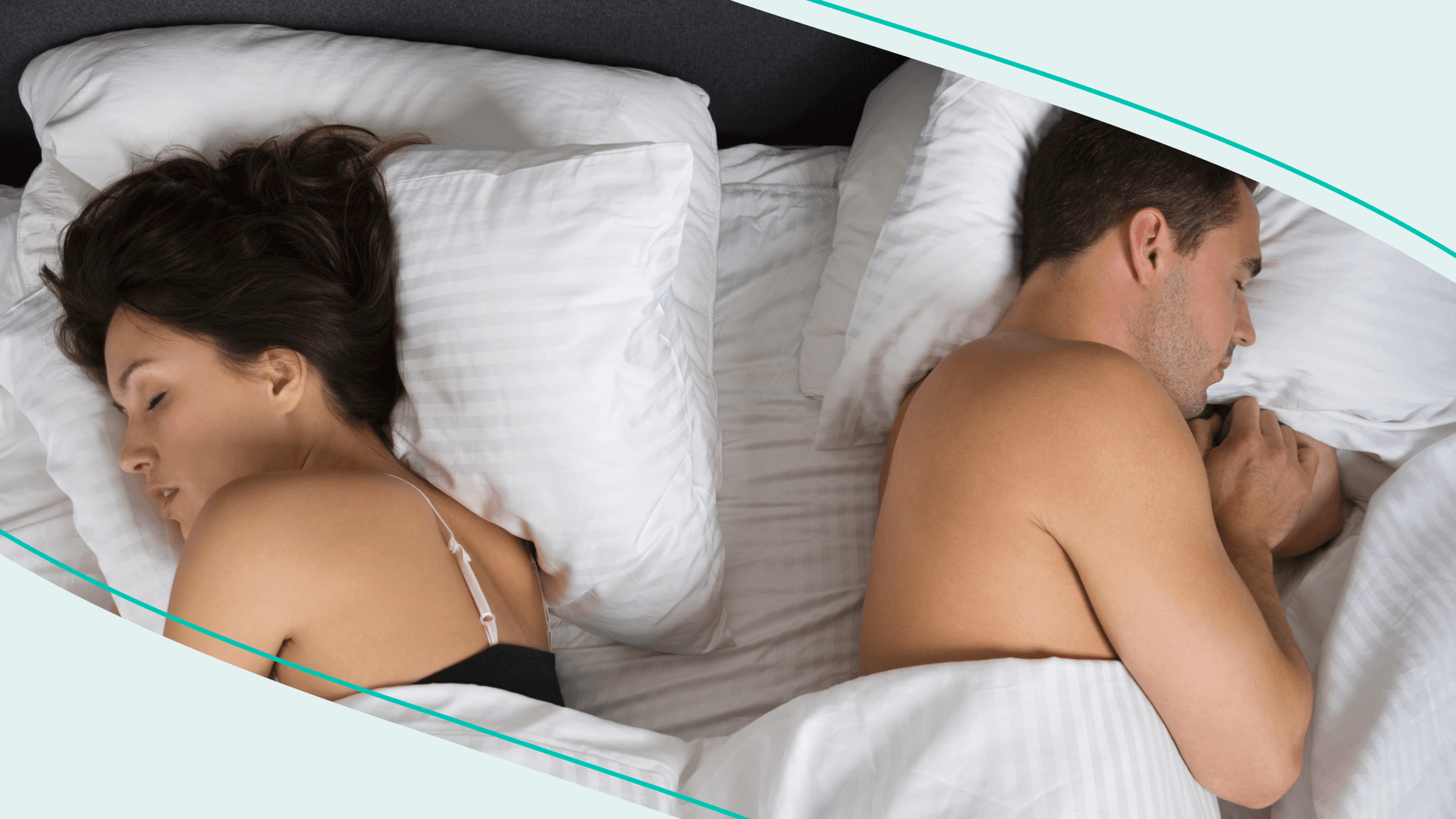Sleeping in a separate bed or bedroom from your partner — aka a “sleep divorce” — might portray the image that something's wrong in your relationship. The concept has long been associated with “old fuddy-duddies who are not having sex,” according to Wendy Troxel, a sleep expert at the RAND Corporation and the author of “Sharing the Covers.” But, she says, “that's simply not the case.” Now, sleeping separately is becoming more common — but are there actual benefits?
Is sleep divorce healthy?
Sleep divorce might sound like the end of intimacy as we know it. But a little distance at night might not be such a bad thing. The benefits of sleep divorce may include…
Better sleep. Sleep is critical to nearly all aspects of our health and well-being, and that includes how we show up in relationships. Couples who sleep together may be more likely to experience nighttime sleep disruptions. Because sleeping apart could mean no more unwelcome ice-cold feet, loud snorers, or cover-hogs waking you up. Sounds…not terrible?
Fewer relationship issues. Studies have shown that poor sleep quality can contribute to relationship problems. “Couples and people who sleep better are generally better partners. Because their communication skills are better, they're happier, they're healthier, they're funnier, they're more attractive [to each other],” says Troxel.
Better sex. Getting enough high-quality sleep is associated with significant increases in sexual satisfaction. “I'm too tired for sex’ is one of the most common reasons for low sexual frequency among couples,” says Troxel.
All that said, sleeping separately might not be for everyone. There are also health benefits to snoozing together:
Better sleep (again). If your partner doesn’t wake you up at night, you may be able to reap the benefits of sleeping next to them. A 2022 study found that adults who slept with a partner reported less severe insomnia and fatigue — and spent more time asleep — than those who didn’t.
Improved mental health. The same 2022 study also found that sleeping with a partner was associated with lower rates of depression, anxiety, and stress.
Increased intimacy. Hugging, cuddling, and kissing at night may increase emotional and physical intimacy in a relationship. Particularly because that intimacy creates more oxytocin — aka the “cuddle hormone” — which plays an important role in romantic attachment, trust, and sexual arousal.
I’m intrigued. How do I know if it’s time for a sleep divorce?
There’s no one-size-fits-all here. Deciding whether or not to sleep apart depends on your own relationship and sleep quality. If your partner snores, you’re on different schedules, or one of you is a particularly light sleeper, it may be worth considering a different sleeping arrangement.
Think it might be right for you? Start with “some open and honest communication with your partner about the challenges you both are … facing when it comes to the shared sleep experience,” says Troxel. Discuss the potential factors that are getting in the way of good sleep:
If one or both partners have symptoms of a sleep disorder (like sleep apnea or insomnia), seek treatment first.
If movement is the issue, try separating beds within the same bedroom.
If one or both partners are sensitive to noise, that could warrant separate rooms.
If different work schedules are the problem, consider sleeping apart during the week and reuniting on weekends.
Think of a sleep divorce like an experiment, not a long-term contract. And know that the right answer is what works best for you and your partner.
theSkimm
Not all relationships have to operate the same way. So if sleeping separately is going to improve your sleep quality, relationship, and overall happiness, don’t let an outdated stigma get in the way. But if physical touch is your love language, keep on spooning.
Subscribe to Skimm Well
Sign up here to receive our wellness newsletter (currently in beta), filled with actionable advice, expert-vetted content, product recs, and more — delivered directly to your inbox.
